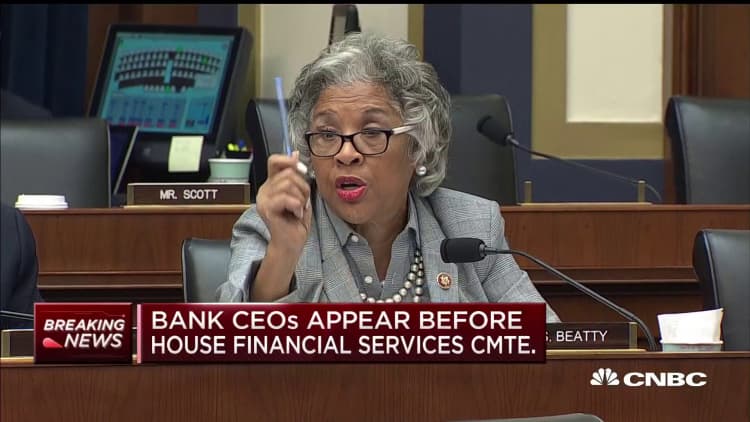Bed Bath and Beyond's executive board is getting a makeover. Its new strategy? Diversify. The response from activist investors, whose pressure on the company helped spur management to overhaul the board in the first place: Still not good enough.
In late April the home-goods retailer announced the appointment of five new independent members to its board, including the retirement of its co-founders, Warren Eisenberg and Leonard Feinstein. The company has touted its incoming members for their diversity in experience, age, race and gender. Six of the 10 board members are now women after adding four this year, 40% are ethnically diverse, and the average board member age is 58, slightly below the industry's typical 60ish age range. All but one of the 10 board members are independent and have been added in the last two years, bringing the company a new generation of leaders.
Before the overhaul Bed Bath's average director tenure was around 19 years, which drew criticism from its most active investors — Legion Partners, Macellum Advisors and Ancora Advisors — who worried about stale perspective and lack of retail experience. The three activist investors still are not happy. With a combined 5% ownership stake, the activists say lack of relevant skill sets and retail experience on the new board will cut short any attempt for a turnaround.
The Bed Bath battleground
Shares of Bed Bath & Beyond have declined from near-$80 in 2015 to as low as $10 earlier this year. The stock has traded between $15 and $16 in recent days and is up strongly off its 2019 low as a result of the activist pressure. But it remains a battleground stock, and the battle is not just about the future of retail in the Amazon era, but the future of board composition across corporations.
Bed Bath said in a statement at the time of the board changes announced in April that the new appointees are "leaders in the fields of global retail, merchandising, technology, logistics, finance and governance" and have held senior positions in companies such as Amazon, Avon Products and Family Dollar Stores.
The activist investor group initially offered 16 candidates they believe should replace the current board, including former executives from Macy's, Guess, Pier 1 Imports and Gap. Almost all of them have retail experience focused in operations, ecommerce, marketing, private labels and corporate turnarounds. None of them, however, are people of color, while five of them are women. A spokesman for the investors said they have a long track record of promoting diverse candidates. He cited an article about the overall poor track record of activist hedge funds when it comes to promoting diversity on the board — his investors, according to the data, look good, but only in comparison to hedge funds making little to no effort.
At the end of last week the activists offered a reduced slate of 10 director nominees, and also sued Bed Bath & Beyond in federal court for issues related to the board battle, The company responded in a letter from its lawyers that it had offered to interview all of the candidates recommended by the investors, an offer it said the activists ignored, and had never ruled out out any of the activist candidates from ultimately being named to the board.
"The boards don't run the company, but if they're not pushing the company toward the right direction and to try new things, then that's the issue," said Bobbie Lenga, who leads the global retail practice for Russell Reynolds Associates, an executive search and management consulting firm. "Bed Bath, that board has had the same people for a long time."
The assumed role of a board of directors has been changing from primarily a defender of shareholder interests to a body that gives active input on competitive landscapes, especially in the battered retail sector. There have been more retail store closures already in 2019 than in all of last year. In 2017 a record was set for store closures, but that record is expected to be eclipsed this year.
Even though a board doesn't have managerial responsibilities, if you think about it as a micro company, you can't have a bunch of CEOs and CFOs there.Stephanie Crearyassistant professor at the Wharton School of Business
It's unclear if Bed Bath's newly appointed board members will be the formula the 48-year-old company needs to shift its strategy after mixed earnings, slashed sales forecasts and a half-decade decline in market value. While the incoming directors come from a slate of backgrounds, includes mostly women and are more racially and ethnically diverse, the activist group's candidates are retail heavyweights in various arenas, including supply chain, retail operations, marketing, e-commerce and corporate turnarounds.
Analysts have issued warnings that the path may only grow worse for the company as it has had to invest heavily in its website to compete with the likes of Amazon, alongside many other brick-and-mortar companies.
"[Bed Bath & Beyond] has had competitive headwinds from online players from price, selection and delivery perspectives," wrote Brad Thomas, an equity research analyst at KeyBanc Capital Markets, in a recent earnings recap. "Ultimately, we remain concerned that underlying trends could get worse given the rapidly evolving consumer/retail landscape."
When it comes to home products and furniture, Amazon has gained on its competitors. According to research from Bain & Co., a global management consulting firm, Amazon had a net promoter score, a measure of a customer's likelihood to recommend a store or brand, at the top of its peer group. The company has also upgraded its private label brands, including designer partnerships made popular at retailers like Target and Kohl's.

Social diversity — gender, race, ethnicity and age — is only half of the equation for any board. The other half: diversity of professional skills and experiences, according to early research from Stephanie Creary, an assistant professor at the Wharton School of Business and her colleagues.
One of the strategies Bain & Co. suggests retailers undertake to counter Amazon is to reinvent stores by incorporating new technologies, a tactic that Lenga notes will require leadership in different skills. That creates one hole many companies she works with are trying to fill as competition heats up: diverse digital talent.
Nearly half of S&P 500 companies now have at least one younger director, or a corporate board member who's under the age of 50, and 61% of the incoming younger director class in 2018 were women, according to research from PwC.
When GE restructured its board last year, the company said it considered factors that included "cognitive diversity" as it looked to revamp leadership.
In Bed Bath's case, its youngest board members, JB Osborne, 38, was recruited last year and has worked with emerging brands like Casper, the growing bed-in-a-box mattress company, and online footwear company Allbirds. The company cites that Osborne, also the cofounder of branding company Red Antler, brings extensive knowledge in emerging technologies and data analytics in digital marketing. The investor slate has also proposed their own ecommerce giants, including the former CEO of global ecommerce for Japanese fashion company Uniqlo and others from Walmart's and Coach's online stores. The youngest candidate in the group is 49.
Lenga also cited Nordstrom as an example of a company that has been able to balance an online business with a bricks-and- mortar presence. In February, the company appointed two new women to its board, which now has five women and three people of color. Nordstrom shares have remained volatile in recent years, but the stock is much higher today than it was at its financial crisis low, which is not the case with Bed Bath & Beyond.
Diversity fatigue
Once you expand the candidate pool to include those from other roles that are non-traditional, such as candidates in marketing or human resources, you also expand the amount of diverse candidates that are available, Creary's research finds.
S&P 500 companies are moving away from the notion that board members must have CEO credentials. Research from executive recruiting firm Spencer Stuart found that one-third of the incoming class of directors for S&P 500 companies were serving on their first public company board, and only 35% of them were active or retired CEOs.
"Even though a board doesn't have managerial responsibilities, if you think about it as a micro company, you can't have a bunch of CEOs and CFOs there," Creary said. "You've got to have other people who have that missing piece to keep it going."
One of the most revered figures in the market, Berkshire Hathaway CEO Warren Buffett, has pushed back against two trends in board selection: diversity and independence.
DealBook columnist and CNBC anchor Andrew Ross Sorkin also noted in a recent column that Berkshire filings with the Securities and Exchange Commission, explicitly states that it does not consider diversity when hiring board members: "The Governance Committee does not seek diversity, however defined. Instead, as previously discussed, the Governance Committee looks for individuals who have very high integrity, business-savvy, an owner-oriented attitude and a deep genuine interest in the company."
Buffett also dismissed the idea of "independent" directors, positions that usually include hundreds of thousands of dollars in compensation. "They aren't going to upset the apple cart," he said. "How in the world is that independent. You don't get invited to be on your boards if you belch too often at the dinner table."
Paul DeNicola, a principle in PwC's Governance Insights Center, alongside Paula Loop said their team found in a survey conducted in 2018 that directors are experiencing "diversity fatigue." A slight majority (52%) said they think diversity efforts are motivated by political correctness and 48% felt shareholders are too preoccupied with diversity.
Strategies DeNicola and Loop list to improve board diversity include expanding the size of the board, rethinking the criteria of candidates and understanding that one minority on the board is not enough to effect real change.
"I think the (talent) pool is being expanded and if it weren't, you wouldn't be seeing some of the advancements of having more diverse boards," said DeNicola.
However, women still only hold 24% of S&P 500 board seats while 17% are minorities, including African-Americans, Hispanic/Latino and Asian, according to Spencer Stuart.
"I don't think there's no lack or shortage of potential board nominees that are diverse," DeNicola said. "It's not a supply problem; it just requires boards to have a broader perspective of the backgrounds of potential candidates."
This story has been updated to include a reduced slate of directors offers by activists, a lawsuit filed by these investors against Bed Bath & Beyond and the company's response.







